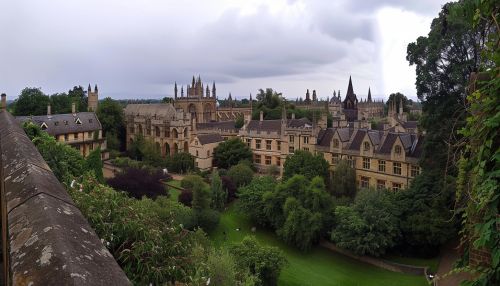Graham Wallas
Early Life
Graham Wallas was born on 31 May 1858 in Sunderland, in the North East of England. He was the son of George Wallas, a clergyman of the Church of England, and his wife, Mary. Wallas was educated at Shrewsbury School, one of the oldest and most prestigious public schools in England. He then went on to study at Corpus Christi College, Oxford, where he graduated with a first-class degree in Greats, a course combining classics, ancient history, and philosophy.


Career
After leaving Oxford, Wallas moved to London where he became involved in the Fabian movement, a socialist organization that sought to advance the principles of democratic socialism via gradualist and reformist methods. He became one of the society's most prominent members, alongside figures such as George Bernard Shaw and Sidney Webb.
In 1895, Wallas was appointed as a lecturer at the newly established London School of Economics (LSE). He later became a professor of political science at the institution, a position he held until his retirement in 1923. At LSE, Wallas was instrumental in shaping the school's curriculum and approach to the study of social sciences.
Wallas was also a prolific writer, authoring several books on political and social theory. His most notable works include "The Life of Francis Place" (1898), "Human Nature in Politics" (1908), and "The Great Society" (1914). In these works, Wallas explored the psychological aspects of political behavior, arguing that rational thought was less influential in political decision-making than instinct and emotion.
Contributions to Political Science
Wallas is best known for his contributions to the field of political science, particularly in relation to the study of political psychology. He was one of the first scholars to explore the psychological aspects of political behavior, challenging the prevailing view of the time that politics was a purely rational process.
In his book "Human Nature in Politics", Wallas argued that political decisions were often influenced more by instinct and emotion than by rational thought. He suggested that politicians and voters alike were driven by their feelings and prejudices, rather than by logical analysis of the issues at hand.
Wallas also developed the concept of the "non-rational element" in political decision-making. He suggested that this element, which could include factors such as prejudice, tradition, and emotion, often played a significant role in shaping political outcomes.
Personal Life and Legacy
Wallas married Ada Radford in 1897. The couple had one child, a daughter named May. Wallas died on 9 August 1932 in Portloe, Cornwall.
Wallas's work has had a lasting impact on the field of political science. His exploration of the psychological aspects of political behavior has influenced a wide range of scholars and continues to be a key area of study in the field. His emphasis on the non-rational elements of political decision-making has also been influential, helping to shape modern understandings of politics as a complex interplay of rational and emotional factors.
See Also


